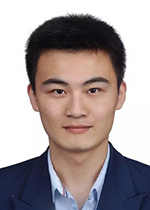Linear and Nonlinear Guided Wave Active Sensing Techniques for Structural Health Monitoring
Date: 2022/08/04 – 2022/08/04
Dissertation Title: Linear and Nonlinear Guided Wave Active Sensing Techniques for Structural Health Monitoring
Speaker: Junzhen Wang, Ph.D. candidate at UM-SJTU Joint Institute
Time: 13:30-15:00, August 4, 2022 ( Beijing Time)
Location: via feishu
Abstract
Guided waves have attracted extensive attention among the Structural Health Monitoring (SHM) and Nondestructive Evaluation (NDE) communities due to their capability to inspect a large area of structures with much energy loss and distinctive sensitivity to a variety of structural damage types. Therefore, the guided wave-based SHM methodologies possess great potential for structural diagnosis purposes. This dissertation initiates with the coupled field semi-analytical finite element formulations for modeling guided wave propagation in arbitrary cross-sectional waveguides, laying a solid foundation for sensitive SHM system design. The enhanced Lamb wave virtual time reversal algorithm with transducer transfer function compensation is subsequently proposed to eliminate the transducer tuning effects for improved time-reversibility. Furthermore, both physical-virtual time reversal and nonlinear resonance spectral correlation techniques are developed for fatigue crack detection and quantification. Finally, an ultra-compliant and flexible structural sensing neural system is established for SHM in wind turbine blades
Biography
 Junzhen Wang received a B.E. degree in aircraft design and engineering from Nanjing University of Aeronautics and Astronautics in 2017. Currently, he is conducting his research in Laboratory of Active Materials and Intelligent Structures (AMIS). His research interests cover structural health monitoring, ultrasonic guided waves, and active materials.
Junzhen Wang received a B.E. degree in aircraft design and engineering from Nanjing University of Aeronautics and Astronautics in 2017. Currently, he is conducting his research in Laboratory of Active Materials and Intelligent Structures (AMIS). His research interests cover structural health monitoring, ultrasonic guided waves, and active materials.
